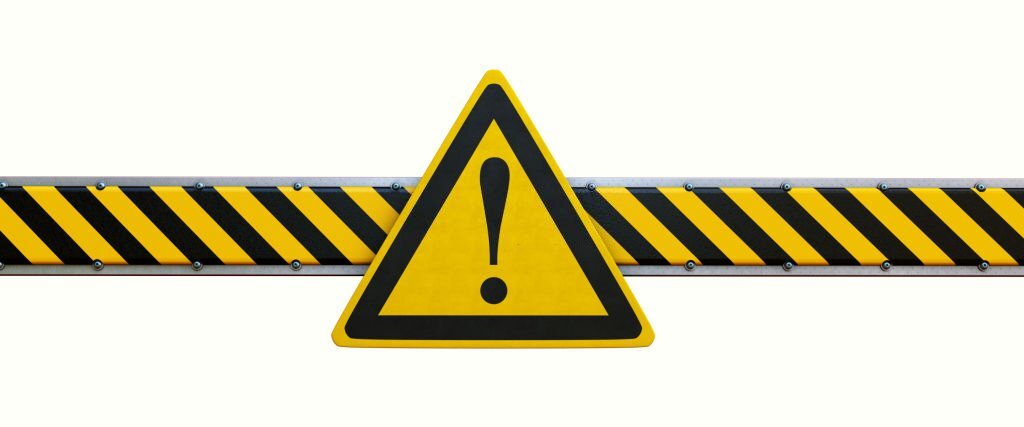When it comes to safeguarding our belongings and ensuring bolt security, plays a crucial role. These robust and reliable devices provide an extra layer of protection, making it challenging for unauthorized individuals to gain access. In this comprehensive guide, we will explore the world of its various types, applications, and benefits they offer. Security Bolts Whether you’re a homeowner, business owner, or simply concerned about personal security, this article will provide you with valuable insights and information to make informed decisions.

Table of contents
How do security bolts work?
Security bolts work by incorporating unique features that make them difficult to remove without proper tools or knowledge. Some common types of security bolts include:
Tamper-Resistant Bolts: These bolts have heads with specialized designs that require specific tools for installation and removal. They often feature unconventional shapes, such as pin-in-torx or snake-eye heads, which prevent standard screwdrivers or wrenches from loosening them.
- How can security bolts be removed?
While security bolts are designed to be challenging to remove without proper tools or knowledge, they can still be removed by individuals with the right equipment or techniques. However, the presence of security bolts significantly deters casual tampering or unauthorized access.
- How are security bolts reusable?
In most cases, security bolts are not reusable after removal. The specialized features that make them tamper-resistant often cause damage or alteration during removal, rendering them unfit for reuse. This ensures that any attempt to tamper with or remove the bolt can be easily identified.
1. What Are Security Bolts?
Also known as door bolts or deadlocks are specialized locking mechanisms designed to provide enhanced security for doors, windows, cabinets, and other access points. Unlike regular bolts or latches, bolts offer superior resistance to forced entry attempts, making them an essential component of any security system.
These bolts are typically made from durable materials like steel or hardened alloys, ensuring their strength and longevity. With their unique design and robust construction, act as a reliable barrier against unauthorized access, deterring potential intruders and enhancing the overall security of premises.
2. How do Security Bolts Work?
Security bolts incorporate various mechanisms to prevent tampering. The most common types of have non-standard drive designs, making it challenging for conventional tools to engage and remove them. Some feature breakaway heads that shear off once tightened to a specific torque, leaving a tamper-evident design. Others employ shear mechanisms that break upon excessive force, preventing unauthorized removal. These design features ensure that cannot be easily removed or tampered with, providing an added layer of security.
Different Types of Security Bolts
There are various types of available in the market, each designed for specific applications and security requirements. Let’s explore some of the most common types:
1. Deadbolt Locks
Deadbolt locks are one of the most popular types of used in residential and commercial settings. These locks feature a solid metal bolt that extends into the door jamb, providing a high level of resistance to forced entry attempts. Deadbolt locks can be further classified into single-cylinder and double-cylinder variants, each with its own unique benefits.
2. Surface-Mounted Bolts
Surface-mounted bolts, also known as slide bolts, are versatile security devices that can be installed on doors, windows, gates, or any other access points. These bolts consist of a sliding metal rod that extends into a catch or strike plate, securing the door or window in a locked position. Surface-mounted bolts are relatively easy to install and offer an additional layer of security.
3. Mortise Bolts
Mortise bolts are specially designed that are recessed into the edge of a door or window frame. These bolts provide a higher level of security compared to standard surface-mounted bolts as they are less prone to tampering or forced removal. Mortise bolts are commonly used in commercial settings or areas that require a more robust security solution.
4. Keyless Entry Bolts
Keyless entry bolts are a type of security bolt that offers a convenient and secure solution for access control. Unlike traditional bolts that require keys or tools for the operation, keyless entry bolts utilize advanced technology such as electronic keypads, biometric scanners, or remote controls to grant entry. These bolts are commonly used in residential and commercial settings, providing an efficient way to manage access to doors, gates, and other secure areas. With keyless entry bolts, users can enjoy the convenience of not carrying physical keys while ensuring enhanced security and control over access to their premises.

Benefits of Using Security Bolts
Using bolts offers several significant benefits for both residential and commercial purposes. Let’s take a look at some of the advantages they provide:
- Enhanced Security: Security provide a robust barrier against unauthorized entry attempts, ensuring the safety of your premises and belongings.
- Deterrence: The presence of visible acts as a deterrent, discouraging potential intruders from attempting a break-in.
- Added Protection: By securing windows, doors, or cabinets with, you add an additional layer of protection, making it harder for intruders to gain access.
- Peace of Mind: Knowing that your property is equipped with reliable offers peace of mind, allowing you to rest assured that your belongings and loved ones are safe.
- Versatility: Security can be installed in various locations, including doors, windows, gates, cabinets, and more, making them suitable for a wide range of applications.
- Compatibility: Security can often be integrated into existing security systems, providing a comprehensive and cohesive security solution.
- Easy Installation: Many bolts are designed for easy installation, allowing homeowners to enhance their security without requiring professional assistance.
How to Choose the Right Security Bolts
When selecting for your specific needs, it’s essential to consider various factors to ensure you make an informed decision. Here are some key aspects to keep in mind:
- Security Requirements: Assess the level of security you require based on your location, property type, and potential threats.
- Type of Access Points: Determine which access points, such as doors, windows, or cabinets, you want to secure with bolts.
- Quality and Durability: Opt for bolts made from high-quality materials to ensure their longevity and resistance to tampering.
- Locking Mechanism: Consider the type of locking mechanism that suits your preferences, whether it’s a traditional key, keypad, or electronic lock.
- Installation Process: Evaluate whether you can install the yourself or if professional assistance is necessary.
- Budget: Set a budget for your security bolt investment and look for options that offer the best balance between cost and features.
By considering these factors, you can narrow down your options and choose one that aligns with your specific requirements and budget.

Installation Process of Security Bolts
Installing bolts can vary depending on the type and model you choose. It’s important to carefully follow the manufacturer’s instructions to ensure proper installation. Here is a general overview of the installation process:
- Gather the Necessary Tools: Before you begin, gather all the required tools, which may include a drill, screws, screwdriver, and measuring tape.
- Measure and Mark: Measure the appropriate location for installing the security bolt, ensuring it aligns with the door, window, or cabinet frame. Mark the spot where you will drill the holes.
- Drill the Holes: Use a drill to create holes for the security bolt and strike plate. Be cautious not to damage the surrounding surfaces.
- Attach the Security Bolt: Align the security bolt with the drilled holes and attach it securely using the provided screws or fasteners.
- Install the Strike Plate: Position the strike plate in the corresponding location on the door frame and secure it with screws.
- Test and Adjust: After installation, test the security bolt by locking and unlocking it multiple times. Make any necessary adjustments to ensure smooth operation.
Remember, if you are unsure about the installation process or encounter any difficulties, it’s recommended to seek professional assistance to ensure proper installation and optimal security.
Maintenance and Care of Security Bolts
To ensure the longevity and effectiveness of your bolts, regular maintenance and care are essential. Here are some guidelines to follow:
- Periodic Inspections: Regularly inspect yours for any signs of damage, wear, or tampering. Look for loose screws, bent components, or malfunctioning mechanisms.
- Lubrication: Apply a suitable lubricant to moving parts and mechanisms to ensure smooth operation. Follow the manufacturer’s recommendations for lubrication intervals.
- Cleaning: Keep your clean and free from dirt, debris, or obstructions. Use a soft cloth or brush to remove any buildup or residue.
- Tighten Loose Components: Check and tighten any loose screws, bolts, or fasteners to maintain the integrity and stability of the bolts.
- Replace Worn Parts: If you notice any significant wear or damage to components, such as bolts or strike plates, replace them promptly to maintain the effectiveness of your security system.
- Professional Maintenance: Consider scheduling periodic professional maintenance to ensure you are in optimal condition. Professional locksmiths can inspect, clean, and service you to ensure their proper functionality.
By following these maintenance practices, you can extend the lifespan of your and ensure they provide reliable security over the long term.

FAQs
Security bolts are specialized fasteners designed to provide enhanced security for doors, windows, gates, and other access points.
Security bolts work by securely fastening doors, windows, or gates to their frames or supports. They are designed to resist forced entry and tampering, providing an additional layer of protection against intruders.
Security bolts are commonly used in residential, commercial, and industrial settings. They can be found in homes, offices, warehouses, storefronts, and various other locations.
Yes, security bolts can be installed on existing doors and windows. Depending on the type of security bolt, installation may involve drilling holes.

